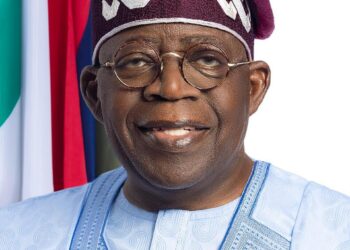Major policy overhaul is needed for the Nigerian economy to reduce its vulnerabilities to fluctuations in international market as the fast spreading coronavirus from China is threatening the nation’s primary source of revenue, oil.
Demand for oil has slumped in the months since the outbreak of the epidemic. “Nigeria is still hopelessly dependent on crude oil and so anything that impacts the price or demand for crude oil impacts us. And because we have no fiscal buffers or significant foreign reserves, the impacts will be significant,” Dr Nonso Obikili, Director at Turgot Centre for Economics and Policy Research said.
China’s Coronavirus has proved that outside regional conflict, oil prices can be disrupted by other factors that will hit hard on countries like Nigeria whose economy is highly dependent on revenue from oil.
Only on Monday the International Monetary Fund, IMF, reversed its forecast on Nigeria’s economic growth.
The IMF’s position is that Nigeria is a mono product economy that rely heavily on revenue from oil export. The spread of the coronavirus virus has curbed demand in China, driving oil prices down nearly 13 per cent this year, and below the $57-a-barrel the Federal Government forecast in its 2020 budget.
Nigeria, which depends on crude for 90 per cent of its exports, has struggled to rebound from a plunge in prices that dragged its economy into its first annual contraction in 25 years in 2016.
The government also needs to urgently raise income beyond the oil sector to close the widening fiscal gap and lower debt-service costs that consumes 60 per cent of its revenues, the IMF said.
In exclusive chats with NATIONAL ECONOMY, experts mull multiple economic model for Nigeria as the only way of saving Nigeria’s economy from collapse.
They averred that reduction in global crude oil prices is not expected to reverse, at least in the short run, thus the need to diversify the economy towards improving other sources of revenue.
Two key sectors which offers great potential in achieving this is the solid minerals and the agriculture sector, from which government can develop a workable economic approach that will make the economy susceptible from inconsistent oil prices.
Each economic model presents different results and each should be tailored to peculiar environment, according to views presented by critical stakeholders.
President of the Manufacturers Association of Nigeria, (MAN), Ahmed Mansur, said the idea of transforming the agriculture sector is very strategic and capable of resuscitating the economy and free it from oil revenue that is no more realistic.
When he spoke to National Economy, he was enthusiastic and expectant that medium- and long-term strategy in the agriculture sector will step up the sectors’ contribution to the Gross Domestic Product, GDP.
He said Nigeria has over the years tried to revamp agriculture using different approaches to boost production but interestingly recent developmental programs are geared towards maximizing income not only on production but also on processing and other areas, (Agricultural value chain).
Mansur, however noted that government should develop an economic model around agriculture but not concentrating effort on commercial agriculture so as not to displace small scale farmers who eke a living from farming.
Agricultural linkage is key, he advised.
According to him, for effectiveness of the Agricultural value chain, an enabling environment through national policies, regulations, and supporting institutions are a prerequisite.
The MAN president noted that policy reforms relevant to the value chain approach focused on increasing private sector participation, quality and safety standards of agricultural products, improving institutional and financial frameworks and promoting national policies that support the agricultural sector; by reducing barriers to inputs, increasing access to finance and providing incentives will suffice.
He argues that access to credit is a pivotal requirement for all value chain stakeholders, including small-scale processors and retailers, storage operators, and traders because access to credit will boost small entrepreneurs like buying processing or packaging equipment, develop storage facilities, and differentiate products.
Speaking in the same vein, Kalu Mosto Onuoha a Nigerian Professor of Geology and President, Nigerian Academy of Science, posited that creating and rehabilitating rural roads focused on linking areas with a competitive advantage to markets can help form competitive value chains.
Onuoha an emeritus professor with the University of Nigeria Nsukka, explained to National Economy that this approach relates to a key aspect of promoting value chains by linking high-value crop production areas to strategic commercial markets. The aim is to reduce transition duration and ensure timely supply of both inputs and outputs to preserve the quality of Agricultural product.
He regretted that government has failed to channel oil revenue to providing infrastructure that can link other sectors for robust national growth.
For professor Onuoha, infrastructure is a key element for the success of any mining industry and the Federal Government needs to take a holistic view regarding infrastructure development and mining sector plan, and execute in synergy.
The Federal Ministry of Mines and Steel Development (MMSD) has already set a revenue target of N20bn for the 2020 fiscal year.
Onuoha said that Nigeria has huge deposits of mineral resources spread across the different states in the federation with abundance of Iron Ore (Kogi, Enugu, Abuja), Bitumen (Ogun, Lagos, Ondo), Gypsum (Anambra, Adamawa, Borno), Gold (Oyo, Sokoto, Kebbi), Talc (Kogi, Osun, Niger etc.), Zinc & Lead (Akwa Ibom, Abuja, Benue). However, the sector remains significantly under-tapped, he said.
In his view, Johnson Egu Chukwu, Chairman, Chief Executive Officer of Cowry Asset Management Limited and facilitator Institute of Chartered Accountants of Nigeria (ICAN) and Financial Institutions Training Centre, FITC, said Nigeria should exert energy in boosting the agriculture sector to support its revenue earning outside oil.
Chukwu argued that agriculture was the mainstay of the economy and can be revived with right policy framework that will attract major investments.
He said that addressing market-information issues and support for key market drivers such as product differentiation will enable value chain stakeholders to develop products that respond to market needs.



